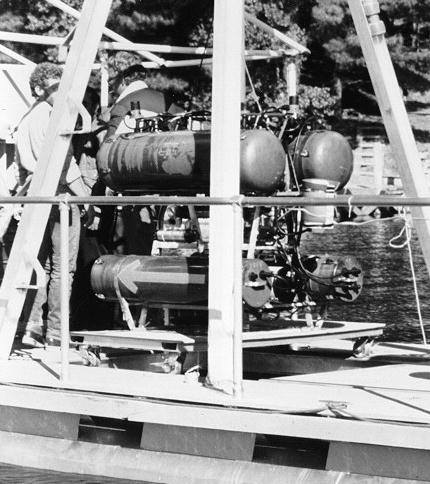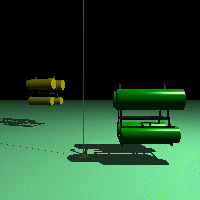Intelligent Undersea Vehicles
 Undersea vehicles
Undersea vehicles
Autonomous underwater vehicles (AUVs) are unmanned underwater robots that are becoming increasingly important in a variety of areas, including exploration, data gathering (e.g., for climate change), industry, and the military. Today’s AUVs are limited by their control software, and can undertake only simple or limited-duration missions without human supervision. Ideally, AUVs should be able to perform complex, long-duration missions without the need for human intervention. This requires state-of-the-art (or beyond) artificial intelligence (AI) techniques.
 Multi-AUV systems
Multi-AUV systems
Cooperating multi-AUV systems are especially important for some applications, such as returning simultaneous data points from a large volume of the ocean (e.g., an autonomous oceanographic sampling network, or AOSN) or coordinating to sweep an area for mines. Yet these systems pose even greater challenges for intelligent control, requiring sophisticated approaches from the area of AI known as multiagent systems (MAS) research.
AUV-related research at UMaine
UMaine’s School of Computing and Information Science has a long history of research in artificial intelligence for solving problems in intelligent AUV and multi-AUV control. Work has been ongoing in the Maine Software Agents and Artificial Intelligence Laboratory (MaineSAIL) since 1995 on projects related to intelligent AUV control, including automated planning and replanning, context-sensitive reasoning, unanticipated event handling, interagent communication, autonomous organization and reorganization of multi-AUV systems, and task allocation. Work has been funded by the National Science Foundation and by the Office of Naval Research. Current activity includes participation in the Maine Center for Auonomous Marine Survey (MCAMS), an interdisciplinary effort by researchers in marine science, AUV development, and computer science that was recently funded by the Maine Technology Institute (approximately $1.3 million), and continuing collaboration with other entities, such as the Autonomous Undersea Systems Institute (Lee, NH)..
